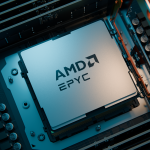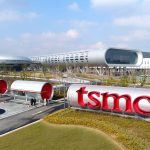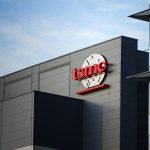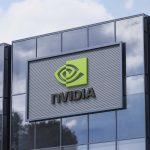
- Semiconductors
- Stock Market
- Tariffs
TSMC Rallies to Record on US Tariff Exemption and AI Chip Boom
5 minute read

Global semiconductor maker TSMC reports record monthly sales as artificial intelligence chip production drives 26% revenue growth
Key Takeaways
- TSMC July sales surge 26% year-over-year to $10.8 billion, driven by robust AI chip demand and marking a 22.5% increase from June
- AI and high-performance computing now represents 60% of total revenue, up from 52% last year, with advanced 3nm-7nm processes accounting for 74% of wafer revenue
- Company raises full-year revenue growth forecast to 30% and expects Q3 revenue of $31.8-$33.0 billion, significantly above 2024 levels
Introduction
Taiwan Semiconductor Manufacturing Co delivers another record-breaking performance as AI demand transforms the global chip industry. The world’s largest contract chipmaker reports July sales jumped 26% year-over-year to $10.8 billion, underscoring the company’s critical role in supplying processors for artificial intelligence applications.
The results highlight TSMC’s position as the primary beneficiary of surging AI infrastructure investments. Major technology companies continue expanding data center capacity, driving unprecedented demand for the advanced semiconductors that power machine learning workloads.
Key Developments
TSMC’s July revenue reached NT$323.17 billion, representing the company’s strongest monthly performance in its recent growth trajectory. The 22.5% month-over-month increase from June demonstrates sustained momentum across key customer segments.
High-performance computing, which encompasses AI and server chips, now contributes 60% of TSMC’s total revenue compared to 52% in the previous year. The company’s most advanced 3nm process technology climbed to 24% of total revenue, reflecting the industry’s shift toward premium chip architectures.
Year-to-date sales from January through July show a 38% increase compared to 2024, confirming the durability of AI-driven demand. TSMC serves as the exclusive foundry for critical AI processors, including NVIDIA’s H100 and H800 graphics processing units that form the backbone of modern AI training systems.

Market Impact
TSMC shares rose more than 6% in early trading Thursday, reaching $175.29 as investors responded positively to the strong sales figures. The stock has gained approximately 10% year-to-date, outpacing broader semiconductor indices.
The company’s gross margins remain robust at 57-59%, indicating significant pricing power as demand continues outstripping supply for advanced chip manufacturing capacity. TSMC’s second-quarter results exceeded analyst expectations, with revenue growing 44% year-over-year to $30.07 billion.
Advanced chips manufactured on 3nm, 5nm, and 7nm process nodes generated 74% of wafer revenue, demonstrating the market’s willingness to pay premium prices for cutting-edge semiconductor technology. The company’s technological leadership translates directly into financial outperformance across key metrics.
Strategic Insights
TSMC’s dominance in advanced chip manufacturing creates substantial competitive advantages as AI applications proliferate. The company controls production of processors essential to data center operations for Meta, Google, Microsoft, and other cloud infrastructure providers racing to deploy AI capabilities.
The rise of “sovereign AI” initiatives, where governments seek domestic control over AI technology stacks, further amplifies demand for TSMC’s manufacturing services. Nations investing in local data centers require the same advanced processors that drive global AI development.
TSMC’s $165 billion commitment to US manufacturing represents a strategic hedge against geopolitical risks while maintaining technological leadership. The Arizona facilities will handle 30% of the company’s most advanced chip production, supporting both domestic and international customers.
Expert Opinions and Data
CEO C.C. Wei emphasizes that AI compute demand for both training and inference applications drives revenue growth and supports higher unit pricing. “The demand for advanced processes for AI compute engines is driving up revenues and potentially unit prices in the future,” Wei stated during recent earnings discussions.
According to Bloomberg, analysts view TSMC’s performance as validation of the semiconductor industry’s AI-driven transformation. The company’s unique manufacturing capabilities position it as an essential partner for AI processor development.
Wei acknowledges ongoing uncertainties, noting that “uncertainties remain in the second half, particularly around trade policy and customer inventory levels.” However, the company maintains aggressive expansion plans with eleven new fabrication facilities and four packaging centers planned for Taiwan.
Industry observers highlight TSMC’s role as the “beacon” of the AI semiconductor cycle, with the company’s fortunes closely tied to enterprise and consumer AI adoption rates. The rapid expansion of 2nm manufacturing capabilities addresses growing computational requirements for next-generation AI applications.
Conclusion
TSMC’s July sales performance reinforces the company’s position at the center of the global AI infrastructure buildout. The sustained revenue growth across advanced manufacturing processes demonstrates the semiconductor industry’s fundamental shift toward AI-optimized chip architectures.
The company’s technological leadership, manufacturing scale, and strategic investments create a comprehensive competitive position as AI applications expand across industries. TSMC’s results serve as a barometer for broader technology sector health and AI adoption momentum.








